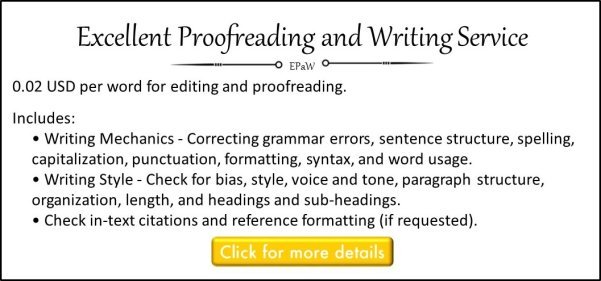Writing a Scientific Paper - Abstract, Keywords, Acknowledgments and References
Title
The title, of your scientific paper, will be the part of the paper seen and read most often. It will be in the journal contents, any references to your work, online and offline citation indexes and subject indexes among others. It is very important to get it right.
A good title will help other researchers find your work as it will be a true representation of the information in the paper. A bad title will mean that other scientists can’t find your work so it won’t get cited and will be forgotten.

A good title should:
- Be concise – contain as few words as possible
- Describe the paper accurately
- Should be as specific as possible
- Be a label for the work in the scientific paper, possibly omitting the verb
- Be easy to understand, it should not be cryptic or ‘clever’, just clear
- Contain important keywords
When writing your title cut out all the extra words, such as ‘some notes on...’, you should come to the point. Be clear and concise.
Titles usually focus on the subject rather than the results obtained. It should be an accurate reflection of the paper.
Remember to follow the style guide of the journal if they have specified a style for the title.

Authors
Just below the title in most scientific papers the authors are listed. The names of the authors are important as you need to be named as an author on the paper to get credit for the work.
Full names should be used to help identify all authors and the addresses of the institutions where the authors work should be added.
An author should only be someone who has made a significant contribution to the paper. That usually means they've been involved in the planning and/or the writing stage of the paper. Normally someone who just collected data should not be an author and should be thanked in the acknowledgments section.
It is often wise to work out the order of the names in the author list at the planning stage as the order is used to determine the importance, of that person, to the research carried out. It's best to sort this early so that there can be no misunderstandings about the order if it's not discussed.

Abstract
The abstract is usually between 300 and 350 words long (some can be longer and some shorter). It is a summary of the paper. It should contain the main facts from the paper.
Sometimes the abstract contains a summary of each of the main parts of the paper, while other times it'll focus more on the main results obtained. It should contain the main conclusion.
An abstract should be able to stand alone. It should make sense and be complete without the rest of the paper as it might be republished.
The abstract should not contain anything which isn't in the main paper. There should be no references to tables or figures from the paper, as it might be published separately or references to the literature. Any abbreviations used should be standard and well known.

Keywords
The keywords usually come after the abstract. They're the words which will be used to index the paper.
They should be specific to, and representative of the work being presented.
Usually the journal will want about five, but check the journal’s style guide to make sure.

Acknowledgments
In the acknowledgments section you should thank anyone who helped, in a significant way, with the research but who are not included as an author. This could be anyone who helped collect data or a technician who was very helpful. This should not be a long list. Only include people who you're truly grateful for.
You should also mention any sources of funding and thank them for providing the money. Also include any facilities that you used for free or at a reduced rate.

References
In the reference section you need to include the full references of all the papers or sources that you cited while writing your scientific paper.
Most journals have specific guidelines for the formatting of reference lists. Check their websites careful for these and follow them.
You should only include references for sources that you have cited in the text.

If you’d like to ask me any questions you can visit the Excellent Proofreading and Writing Facebook page or see the page about my proofreading service.

Return to Scientific Writing from Writing a Scientific Paper 2
Return to Excellent Proofreading and Writing Homepage from Writing a Scientific Paper 2



By Jolyon Dodgson, copyright © 2011-2020.
Excellent-Proofreading-and-Writing.com - Proofreading and writing help for excellent first impressions.





New! Comments
Have your say about what you just read! Leave me a comment in the box below.